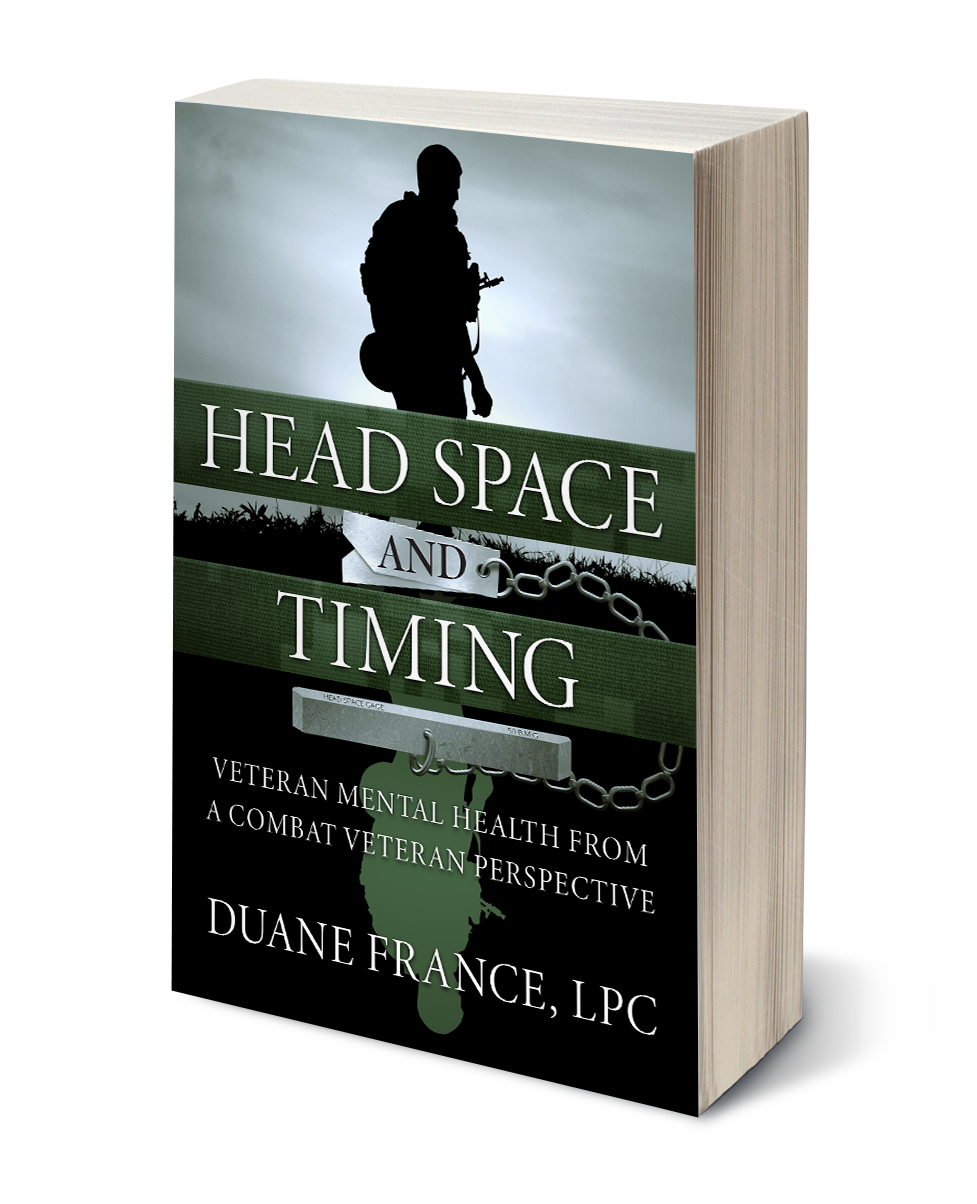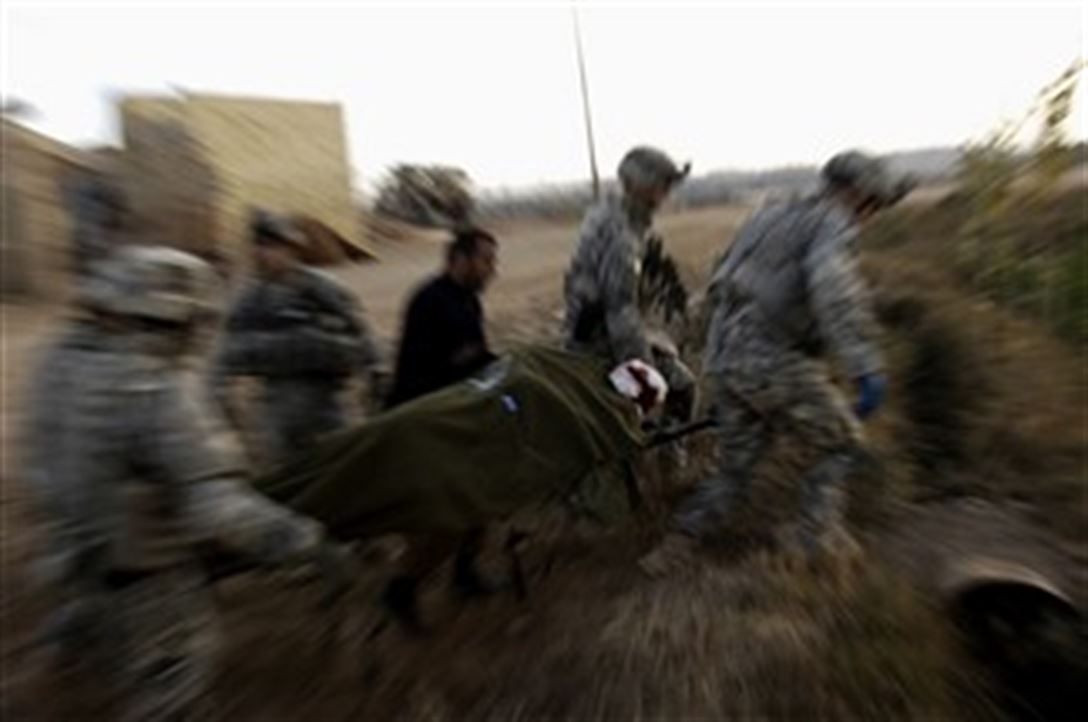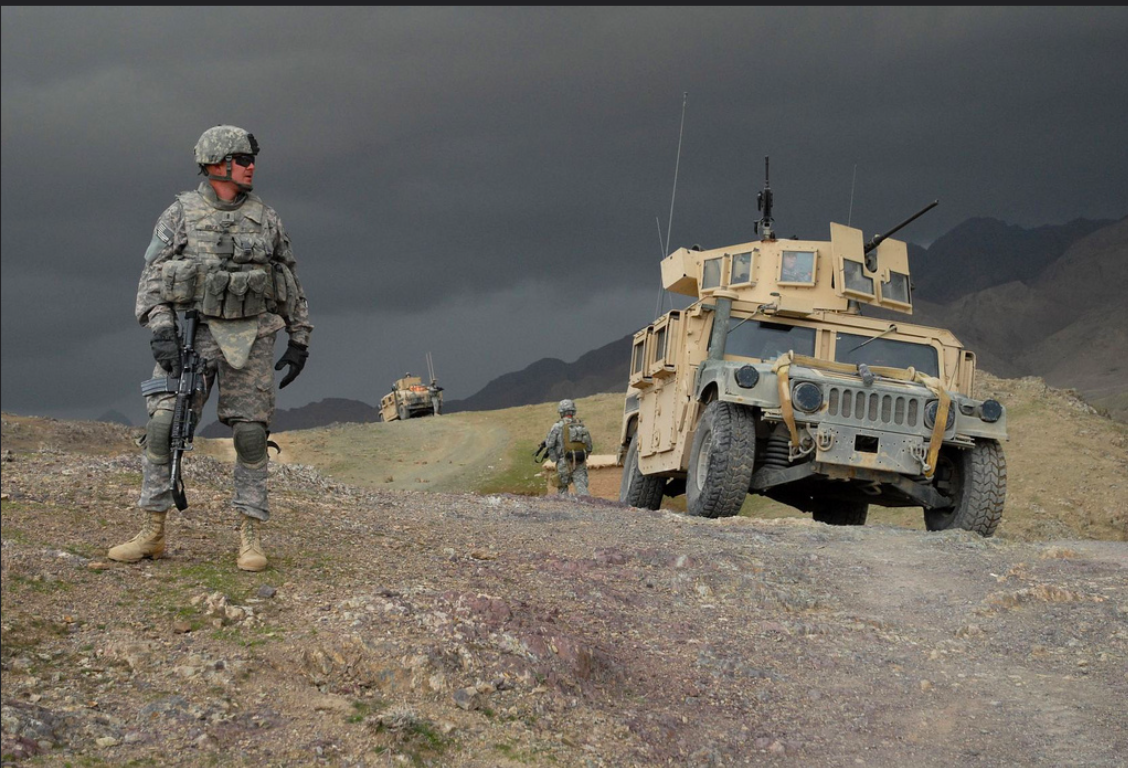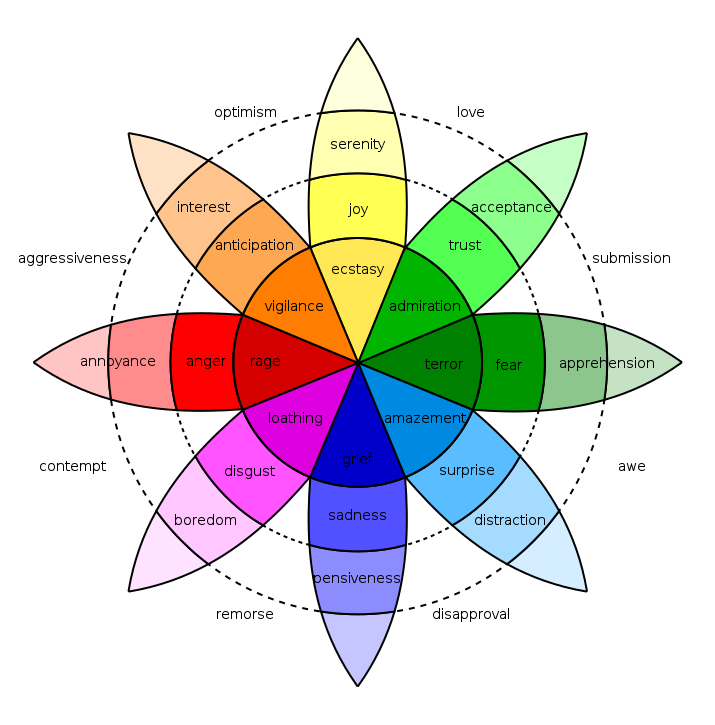
A U.S. Air Force pararescueman provides overwatch during a personnel recovery exercise at an undisclosed location in Afghanistan, March 6, 2018. (U.S. Air Force Photo by Tech. Sgt. Gregory Brook)
The sheer number of things that we hide from ourself is staggering. We may see others clearly, but when it comes to our own blind spots, they’re as big as a house. We see our face in the mirror, see the impact of our behaviors on our own lives, but have little understanding of what makes us tick or why we do what we do.
I had a veteran say to me once, “I’m simple. What you see is what you get.” We may think that we are straightforward and uncomplicated, that our life is an open book, but the fact is that what’s going on under the surface is even more complex than we even realize. This sometimes causes us to make decisions that are harmful to us in some ways, in order to avoid discomfort in other ways. It’s a human condition, to seek pleasure and avoid pain, and in avoiding pain in one area causing pain in another. In my observation, however, it’s especially common in service members and veterans.
We will sometimes cause ourselves problems in one area of our lives in order to avoid problems in another area. For example, to spare ourselves from the shame of letting others down, we will often expose ourselves to physical or psychological pain. We will push ourselves to exhaustion, and beyond, for the sake of a charismatic leader or a critical mission, sometimes harming ourselves in the process. We don’t do it knowingly or deliberately, but it happens nonetheless.
Dependability and Interdependence
One aspect of military service is the extent to which we rely on each other. The military is a complex organization in which you have different types of units with different types of mission, all combined together to achieve a strategic goal. For the complexity of the organization to work, we have to know that when we need something, it will be there, and if others need something from us, we will have it. Whatever it is…military intelligence, food and water, a certain number of troops at a specific location and a designated time…it all works because we rely on each other to accomplish our individual missions.
This connected interdependence is drilled into us, literally, during our initial military training. We are taught that we have to be dependable in order to accomplish the mission. Sometimes, however, we take that dependability too far. Consider a service member who is injured, but fills a critical role in the unit. They know that they are not at their full capacity, but will sacrifice their own physical health in order to meet the needs of the unit. We don’t want to be described as the “sick call soldier” or “the one who couldn’t hack it.”
Avoiding Shame through Sacrifice
I can tell what you’re thinking; someone who is not operating at full capacity is a liability to the unit. Maybe that’s true, but not always. Not every day is a great day, not everyone is on top of their game all the time. Even when we’re operating at half capacity or less, however, we can still be effective, and may be effective for a long time before things catch up to us. We will continue to perform marginally, which may be good enough, while we are struggling silently with pain.
The key here is that we don’t want to let others down. We tell ourselves that we are a critical part of a unit, that we have to show up and do our job so that someone else doesn’t have to do it for us. We avoid the shame of being considered weak, or broken, or undependable by hurting ourselves more. Logical? Not really. But true. We will disguise or ignore a physical injury, we will hide exhaustion from everyone…including ourselves…in order to avoid the discomfort of the judgement of others, or even ourselves.
Satisfy Personal Desires
Another area where we endure pain one area in order to avoid pain in another area is when we are trying to achieve a goal or satisfy desires. This is something I have personal experience with. I jumped out of airplanes during a couple assignments in the Army. I served in the 82nd Airborne Division for three years in the late ’90s; not only was I Airborne, I was also a Jumpmaster. It was a point of pride for me, and the hardest school I attended in twenty-two years in the Army. It’s a significant accomplishment. There are three levels of parachutist: Basic, Senior, and Master. To qualify for Senior or Master parachutist wings, a paratrooper must be a Jumpmaster and meet certain requirements; the primary of which is a certain number of jumps out of an airplane.
To go from Basic to Senior Parachutist wings, you have to have thirty jumps (among other things). After graduating from Jumpmaster School, I had about a year left on my enlistment before I would leave to go to another duty station, and I wasn’t certain that I would ever make it back to an Airborne unit…so I set a goal to achieve my Senior Parachutist wings.
I jumped out of aircraft sixteen times in the last nine months I was at Fort Bragg.
To give some context, a paratrooper generally only needs to jump once every three months to maintain current proficiency. I was determined to meet my goal, and I’m proud that I accomplished it. But it came at a price.
Sacrifice Health to Satisfy Desires
After achieving my goal, my family and I were stationed in Germany. Within the first several months there, however, the pain I had been ignoring for months finally caught up to me…I couldn’t run more than ten steps without my legs catching fire. Going to the doc…again, grudgingly sacrificing that dependability…I found that I had four stress fractures in my lower legs, two on each side. I spent six months on crutches, healing from the damage I inflicted upon my body for a shiny piece of metal. Was it worth it? I think so. And others may agree. That doesn’t change the fact that it wasn’t the best thing for me…but the pain of not achieving my goal was greater than the physical pain I endured.
This pattern of sacrifice was repeated often in my own career, and I see it repeated often in the veterans I work with as a clinical mental health counselor. Maybe sometimes the sacrifice was worth it. Other times, maybe not. But understanding why we did what we did then, and how it impacts us now, is critical to making sense of our own motivations.
[cl-flipbox link_type=”btn” link=”url:https%3A%2F%2Flp.constantcontact.com%2Fsu%2FFqcekHq|title:Sign%20Up%20Here” back_btn_label=”Receive Updates” back_btn_bgcolor=”#000000″ back_btn_color=”#59d600″ front_icon_image_width=”100%” front_title=”Sign Up for Updates” front_desc=”Enjoying this article? Click here to subscribe and get a free preview of Combat Vet Don’t Mean Crazy” front_bgcolor=”#2e964a” front_textcolor=”#ffffff” back_title=”Sign up here” back_desc=”Subscribe to get added to our content distribution list, and each week you’ll receive our newsletter that contains links to our weekly video, blog, and podcast.” back_bgcolor=”#32a350″ back_textcolor=”#ffffff” valign=”center”]
Do you want to help offset some of the costs of the Head Space and Timing Blog and Podcast? Want to show your appreciation and support? You can put some paper in the tip jar by going here or clicking the button below
 Want to learn more about veteran mental health? The first HS&T Book has recently been released in paperback. Click on the image to the left or this link to purchase the book. See what people are saying about it: This compilation of Duane’s work is key and essential to anyone working with Soldiers and Veterans. Duane provides a senior NCO’s perspective with unmeasurable experience and knowledge on top of his natural gift for seeing numerous levels of humanality and the challenges faced by those who have served our country. I highly recommend it! – A.C.
Want to learn more about veteran mental health? The first HS&T Book has recently been released in paperback. Click on the image to the left or this link to purchase the book. See what people are saying about it: This compilation of Duane’s work is key and essential to anyone working with Soldiers and Veterans. Duane provides a senior NCO’s perspective with unmeasurable experience and knowledge on top of his natural gift for seeing numerous levels of humanality and the challenges faced by those who have served our country. I highly recommend it! – A.C.


